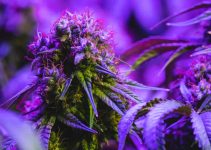In the 1950s and 1960s, LSD gained popularity in Canada, attracting influential figures such as psychiatrist Dr. Humphry Osmond and writer Aldous Huxley. Organizations like the Saskatchewan-based Weyburn Mental Hospital and the Mental Health Research Institute of Saskatchewan played crucial roles in early Lsd canada research. However, their use declined as psychedelic substances became associated with counterculture movements and faced regulatory crackdowns.
In recent years, the buy mushrooms online have been a remarkable resurgence of interest in psychedelic research in Canada. Institutions such as the University of British Columbia, McGill University, and the Centre for Psychedelic Research and Therapeutics at the University of Toronto have been at the forefront of groundbreaking studies. These studies have shown promising results in treating mental health conditions such as depression, PTSD, and addiction.
Legal Framework for Psychedelic Use in Canada
Canada’s legal framework has evolved to accommodate the therapeutic potential of psychedelics. While LSD remains a controlled substance, Health Canada has granted exemptions to select individuals and organizations for research and therapeutic purposes. Additionally, several municipalities have supported decriminalization efforts, signaling a shifting tide in public opinion.
Clinical Applications of LSD Therapy
LSD-assisted therapy is gaining recognition for its potential to catalyze profound healing experiences. By carefully administering LSD in a therapeutic setting, mental health professionals guide patients through transformative journeys. Studies have shown promising outcomes, with individuals reporting reduced symptoms, increased well-being, and a newfound sense of meaning and purpose.
Psychedelic Retreats and Centers in Canada
Canada is home to a growing number of psychedelic retreats and centers that offer guided psychedelic experiences. These retreats provide a supportive environment for individuals to explore the depths of their consciousness under the supervision of experienced facilitators. Each center may have a unique approach, blending traditional indigenous practices, Western psychotherapy, and holistic healing modalities.

Challenges and Controversies
As the psychedelic landscape expands, it faces challenges and controversies. Safety concerns must be addressed carefully, including potential adverse effects and long-term consequences. Public perception and lingering stigma can hinder progress, necessitating education and open dialogue. Ethical considerations regarding accessibility, equity, and cultural sensitivity also emerge as the field develops.
Personal Experiences and Testimonials
Individuals who have embarked on psychedelic journeys often share their transformative experiences. These personal accounts offer glimpses into the profound insights, expanded consciousness, and personal growth that can arise from LSD therapy. By sharing their stories, individuals contribute to a collective narrative that helps destigmatize psychedelics and foster a deeper understanding of their potential.
Integration and Aftercare Support
Integration and aftercare are essential components of psychedelic therapy. After experiencing the profound effects of LSD, individuals must integrate their insights and experiences into their daily lives. Therapeutic practices such as journaling, meditation, and engaging in support groups can aid the integration process.




